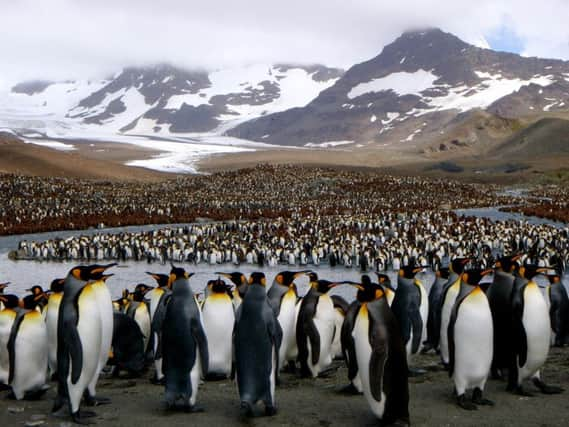Art contest to highlight wildlife turnaround at former whaling hub


The £2 million project has been devised in a bid to highlight the cultural and environmental importance of South Georgia, a UK overseas territory that lies around 1,000 miles from the Falkland Islands.
The initiative is the brainchild of Dundee-based South Georgia Heritage Trust (SGHT), which has been working in collaboration with US organisation Friends of South Georgia Island (FOSGI) to restore nature and preserve the territory’s legacy since 2005.
Advertisement
Hide AdAdvertisement
Hide AdSGHT is calling for artists around the world to come forward with creative ideas for a new work that will interpret the past and highlight the successful turnaround in fortunes of the island, which had been facing the destruction of its native and iconic wildlife due to human actions.
Unique wildlife
The UK overseas territory is home to a number of rare and unique plants and animals, including whales, seals, penguins and globally important seabirds.
From the late 1700s, it became a hub for sealers and later whalers due to the seemingly limitless numbers of the mammals frequenting its waters.
The profitable industry continued for nearly two centuries, fuelled by demand for products used in the manufacture of margarine, soap, cosmetics and lamp oil - finally ending in the 1960s.
By then many whales had been all but wiped out.
Rats, not naturally found on the island, were imported aboard whaling ships and quickly became established.
Populations multiplied rapidly due to a lack of predators, wreaking havoc on local wildlife - particularly birds, including some found only on South Georgia.
Extermination
A major eradication scheme spearheaded by SGHT saw the island declared officially rat-free in 2018.
Nowadays Grytviken whaling station, where tens of thousands of the ocean giants were once slaughtered and processed on an industrial scale, is just a collection of derelict buildings.
Advertisement
Hide AdAdvertisement
Hide AdIt’s hoped the new installation, centred on Grytviken, can help the island’s 15,000 annual visitors understand its historical, cultural and environmental significance.
“The impact of humanity on South Georgia is emblematic of the fragility of our planet, but also gives us hope, thanks to the island’s dramatic turnaround in recent years," said Alison Neil, chief executive of SGHT.
“That is why we have chosen to launch this exciting international artistic competition to shine a light on how, through a greater understanding of the past and our shared cultural heritage, humanity can move from an attitude that the natural world is there to be exploited, to one embracing conservation and protection of the environment.
“SGHT and FOSGI are embarking on a cultural heritage programme to tell the world more about the human story on South Georgia and the whale is an integral part of this narrative."
